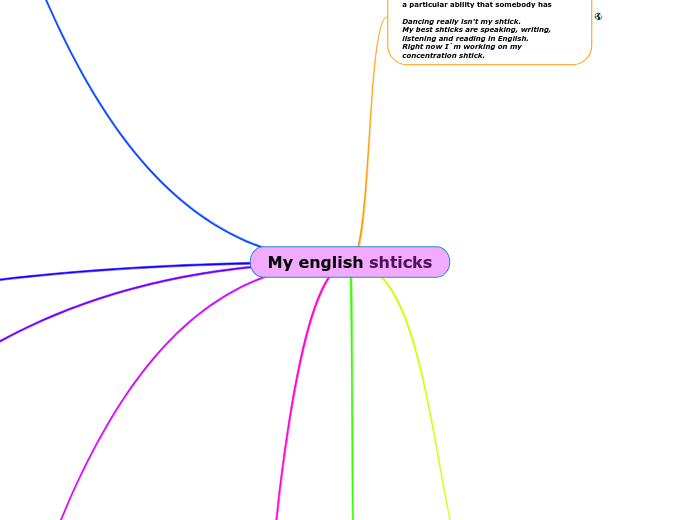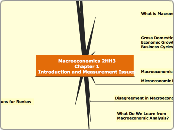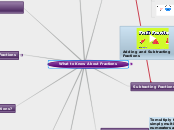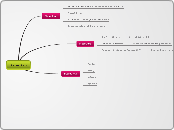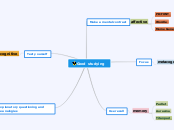My english shticks
Legal English
Legal English in my university
Small QUIZ Legal English
Reading
My Reading Strategies:
Always make sure the other answers are wrong.
Timing! I divide my time for Reading on equal amounts. But generally I have a rule to NEVER spend more than ~18 min on this part of the test.
I always read the text for the first `quick` time BEFORE looking at the questions, because I know myself and when I read something for only specific info, I usually skim the text. Skimming (studying something in a superficial or cursory way) is bad!!!
The senteces that have been removed often express the main idea of the paragraph. As I read, I write down what the main idea of each paragraph is.
To work out what a word refers to:
- look at the sentences before or after the word,
- remember that words like `it` and `this`, or `do` and `so` can refer to verbs, nouns, adjectives and adverbs, or to phrases and clauses.
NEVER leave a question unanswered.
Read the text quickly to get the general idea, then try to answer the questions. Return to the text and underline relevant information in all paragraphs.
Homereading -
"DANDELION WINE" by Bradbury Ray Douglas
Concentrating
Making lists
18 Proven Ways to Stay Focused That Increase Productivity
Writing
`On Writing` by Stephen King is an amazing manual full of practical tools for writers, that will be beneficial not only for the fans of `the King of Horror`, but even for the general audiences.
This book helped me a lot, not only with how to write essays and stories way more interesting and faster - I realized better what it is like to write books for real, what it is like to be an author.
My Writing Strategies:
If asked to write to an official or a company, I NEVER use:
- question tags,
- contractions (e.g., aren't, it'll),
- linkers like well, anyway, by the way,
- All the best at the end of a letter.
Instead I use:
- formal language,
- Yours sincerely/faithfully,
- letter begins with either Dear Sir/Madam or Mr/Ms/Dr + the person`s surname,
- signing letter with my full name.
I use numbered points in reports.
NEVER waste time counting words. I`ve learned how many words i normally write on a line and now just multiply the quantity of lines I`ve written.
NEVER waste time writing your answer again. MAKING CORRECTIONS IS OKAY, if work is clear and easy to read.
Timing! Having limited time to write, I usually break my work into stages: 5 min for reading the instructions, 10 min thinking of ideas and writing a plan, approximately 25 min for writing an answer, 5 min for checking the whole work and correcting mistakes
`Write a plan and check your work after it`s done`
I always read the instructions carefully and decide what kind of letter I am supposed to write.
Speaking
My Speaking strategies:
There are several kinds of Speaking, each of them is special, e.g.:
Interview - before speaking I need to revise vocabulary for education, family and free time activities.
Individual long turn - revise modal verbs!!! Relate to my own experience while describing photo, schedule, graph etc.
Collaborative task - revise language for agreeing/disagreeing and asking for/making/accepting/rejecting suggestions.
DON`T try to dominate and/or treat this as a competition.
Discussion - revise the language for expressing/asking for opinions.
Make a structure for a text inside my mind and try really hard to cover all the points while speaking.
Reject politely.
There are no right or wrong solutions to a problem. Examiners want to hear me speaking!
I always have blanks of speech on the most common topics, like:
- why I am learning English,
- subjects I study/studied at school/university,
- free time activities,
- my family,
- the area where I live,
- my plans for the future.
Paraphrasing! NEVER say `I don't know`.
Excellent Practices for Learning English Pronunciation
Listen to random audio and try to write it down, then retell
5 Finger Retell is a method I learned back then in my primary classes, but which still helps me a lot.
Like it is pictured above, we have five essential elements of a story: characters, setting and 3 points of the plot (beginning, middle, end).
Record yourself while speaking aloud
Speak in front of the mirror
TONGUE TWISTERS
Tongue twisters are a great way to practice and improve pronunciation and fluency. They can also help to improve accents by using alliteration, which is the repetition of one sound. They’re not just for kids, but are also used by actors, politicians, and public speakers who want to sound clear when speaking.
For example:
1. He threw three free throws
2. Can you can a can as a canner can can a can?
3. Betty Botter bought some butter
But she said the butter’s bitter
If I put it in my batter, it will make my batter bitter
But a bit of better butter will make my batter better
So ‘twas better Betty Botter bought a bit of better butter
My most-favored training materials
Listening
For me, the best ways to understand English by ear are to:
Watch TV shows, films and theater performances in the original language - british ones with subtitles, american ones without
From childhood to this day, I adore `Doctor Who` - British science fiction television programme produced by the BBC since 1963 (unbelievably long period of time!).
The show is a significant part of British popular culture, and elsewhere it has gained a cult following.
Reference pronunciation, amusing and diverting plot, for so many years now, every time I watch this series, it’s like I’m coming home.
My favorite episode is the one in which the Doctor takes Van Gogh forward in time so that he sees how his work is loved and appreciated many years later. The coolest scene from this episode I added via hyperlink.
From the field of cinema: I am a huge fan of the British surreal comedy troupe Monty Python. Watching their film `Monty Python and the Holy Grail` in the original language is one indescribable pleasure.
The Pythons' influence on comedy has been compared to the Beatles' influence on music.
Some hilarious and clever jokes from the film:
`Strange women lying in ponds distributing swords is no basis for a system of government`.
`Brother Maynard - bring forth the holy hand grenade!`
`On second thoughts, let us not go to Camelot. It is a silly place`.
Likewise, Shakespeare's Globe regularly post it's plays - to watch them is an amazing chance to experience shakespearean english, the reference pronunciation of British actors, magnificent medieval scenery, bright and eclectic costumes.
My TOP-3 plays so far:
Two Noble Kinsmen
The Winter`s Tale
A Midsummer`s Night Dream
One of my favorite activities during quarantine is to watch the National Theater's full-length plays, which they post for a limited time every Thursday.
My TOP-3 plays so far:
Twelfth Night
Frankenstein
A Streetcar Name Desire
Listen to music, memorize the lyrics and sing along
For example: `Common people`by English alternative rock band Pulp. The song is about those who were perceived as wanting to be "like common people" and who ascribe glamour to poverty - a penomenon commonly reffered to as `class tourism`.
I really like this song because of it's message, also, just like any other song in general, it is a great fount of intricate vocabulary and usefull slang.
Best verse of the song (in my opinion):
Like a dog lying in a corner
They will bite you and never warn you
Look out, they'll tear your insides out
'Cause everybody hates a tourist
Especially one who, who thinks it's all such a laugh
Yeah, and the chip stain's and grease will come out in the bath
You will never understand
How it feels to live your life
With no meaning or control
And with nowhere left to go
You are amazed that they exist
And they burn so bright whilst you can only wonder why
shtick = tip,
definition of shtick noun from the Oxford Advanced Learner's Dictionary:
a particular ability that somebody has
Dancing really isn't my shtick.
My best shticks are speaking, writing, listening and reading in English.
Right now I`m working on my concentration shtick.
